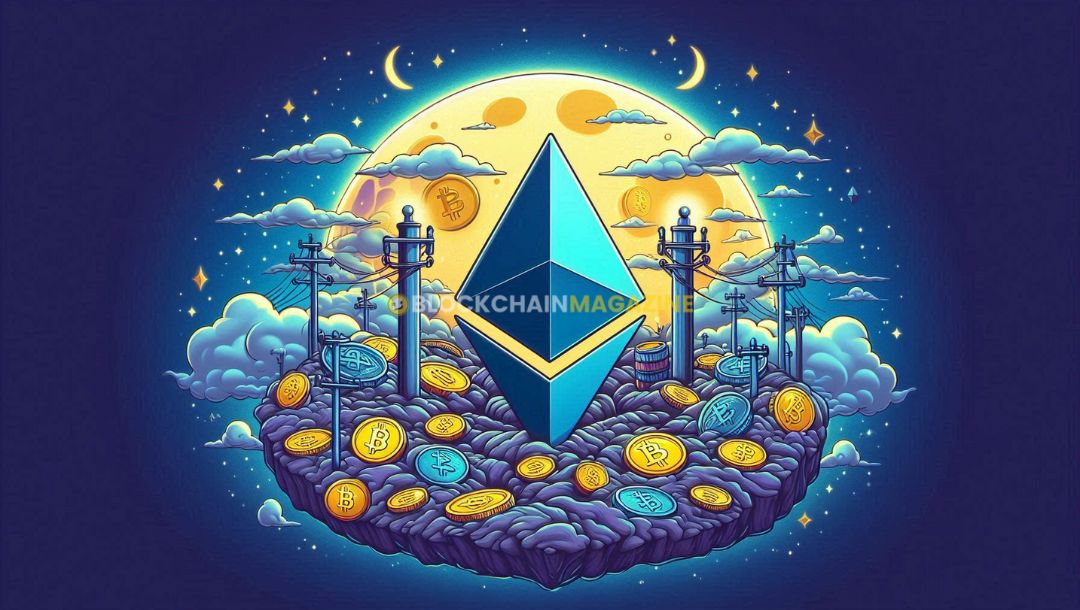The initial narrative surrounding the recent debut of ether exchange-traded funds (ETFs) might suggest a disappointing performance. A cursory glance reveals that investors have collectively withdrawn $465 million from the nine ETFs launched in the U.S. over the past month. This could easily paint a bleak picture for these newly introduced financial products.
However, upon closer examination, a more nuanced reality emerges—one that highlights significant successes within this broader trend. Notably, BlackRock’s iShares Ethereum Trust (ETHA) has garnered over $1 billion in net inflows, positioning it as the seventh-most-successful ETF launch of the year, according to Nate Geraci, president of the ETF Store. Similarly, Fidelity’s Advantage Ether ETF and the Bitwise Ethereum ETF have attracted $390 million and $312 million, respectively, per data from Farside Investors.
Yet, the broader narrative of asset withdrawals cannot be ignored. Much of the capital outflows are attributed to the Grayscale Ethereum Trust (ETHE), a product first introduced to the market in 2017 and publicly traded since 2019. Unlike the new ETFs, Grayscale’s offering operates as a trust with a considerably higher fee structure, leading many investors to transition towards the more cost-effective options presented by the latest ETF entrants.
Also, read – DNA Computing Breakthrough Paves the Way for Living Blockchain Networks
When excluding the significant withdrawals from Grayscale, investors have actually allocated more than $2 billion to the other ether ETFs within the first five weeks. Geraci highlights this as a positive indicator of sustained interest in ether exposure, noting that while the debut of ether ETFs might not have mirrored the explosive success of their bitcoin counterparts, they nonetheless had a promising start.
The substantial outflows from Grayscale’s product, however, do create a certain level of opacity, complicating a clear assessment of the overall market demand for ether ETFs. Geraci acknowledges this, emphasizing the importance of considering the broader context beyond the Grayscale outflows to accurately gauge investor interest.
Looking ahead, the demand for ether ETFs is anticipated to increase in the coming months. Sui Chung, CEO of index provider CF Benchmarks, foresees a growing number of wealth managers incorporating these products into their clients’ portfolios. Chung underscores the importance of ongoing education about Ethereum’s unique value propositions, which will likely drive further allocations. As investors become more familiar with Ethereum’s distinct role within the broader cryptocurrency landscape, its appeal as a complement to Bitcoin in diversified portfolios will become increasingly apparent.
In comparison, spot bitcoin ETFs, which began trading earlier this year, have already witnessed inflows nearing $18 billion. Notably, approximately $20 billion has been funneled into BlackRock’s bitcoin product, a figure that is partially offset by $17 billion in outflows from the Grayscale Bitcoin Trust (GBTC), which, like its ether counterpart, transitioned from a trust to an ETF earlier this year.
This juxtaposition between bitcoin and ether ETFs highlights the evolving dynamics within the cryptocurrency investment space, with ether ETFs poised to carve out their own distinct place in investor portfolios.

 Bitcoin
Bitcoin  Ethereum
Ethereum  Tether
Tether  XRP
XRP  Solana
Solana  Dogecoin
Dogecoin  USDC
USDC  Lido Staked Ether
Lido Staked Ether  Cardano
Cardano  TRON
TRON  Avalanche
Avalanche  Toncoin
Toncoin  Chainlink
Chainlink  Wrapped stETH
Wrapped stETH  Shiba Inu
Shiba Inu  Wrapped Bitcoin
Wrapped Bitcoin  Sui
Sui  Hedera
Hedera  Stellar
Stellar  Polkadot
Polkadot  WETH
WETH  Hyperliquid
Hyperliquid  Bitcoin Cash
Bitcoin Cash  LEO Token
LEO Token  Uniswap
Uniswap  Litecoin
Litecoin  Pepe
Pepe  Wrapped eETH
Wrapped eETH  NEAR Protocol
NEAR Protocol  Ethena USDe
Ethena USDe  USDS
USDS  Aave
Aave  Aptos
Aptos  Internet Computer
Internet Computer  Cronos
Cronos  POL (ex-MATIC)
POL (ex-MATIC)  Mantle
Mantle  Ethereum Classic
Ethereum Classic  Render
Render  WhiteBIT Coin
WhiteBIT Coin  Monero
Monero  Bittensor
Bittensor  MANTRA
MANTRA  Dai
Dai  Artificial Superintelligence Alliance
Artificial Superintelligence Alliance  Arbitrum
Arbitrum  OKB
OKB 



